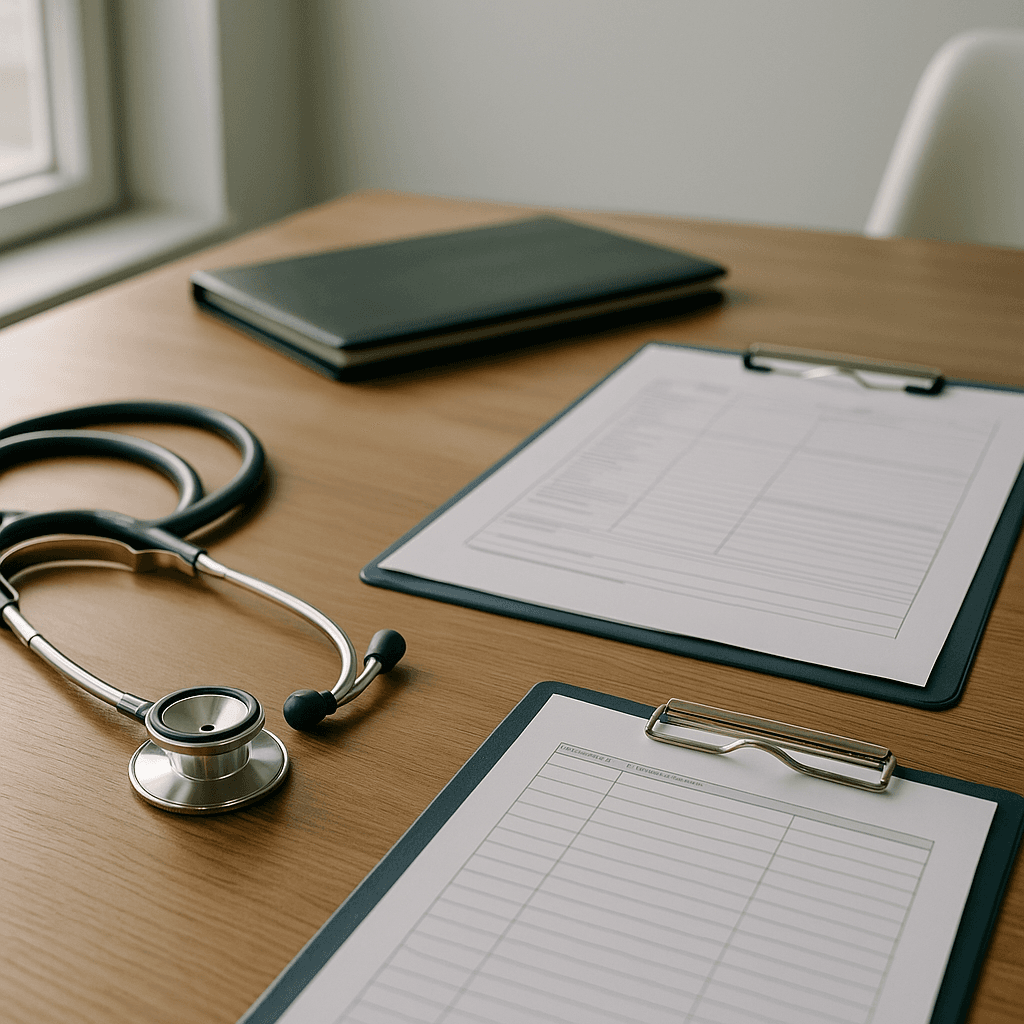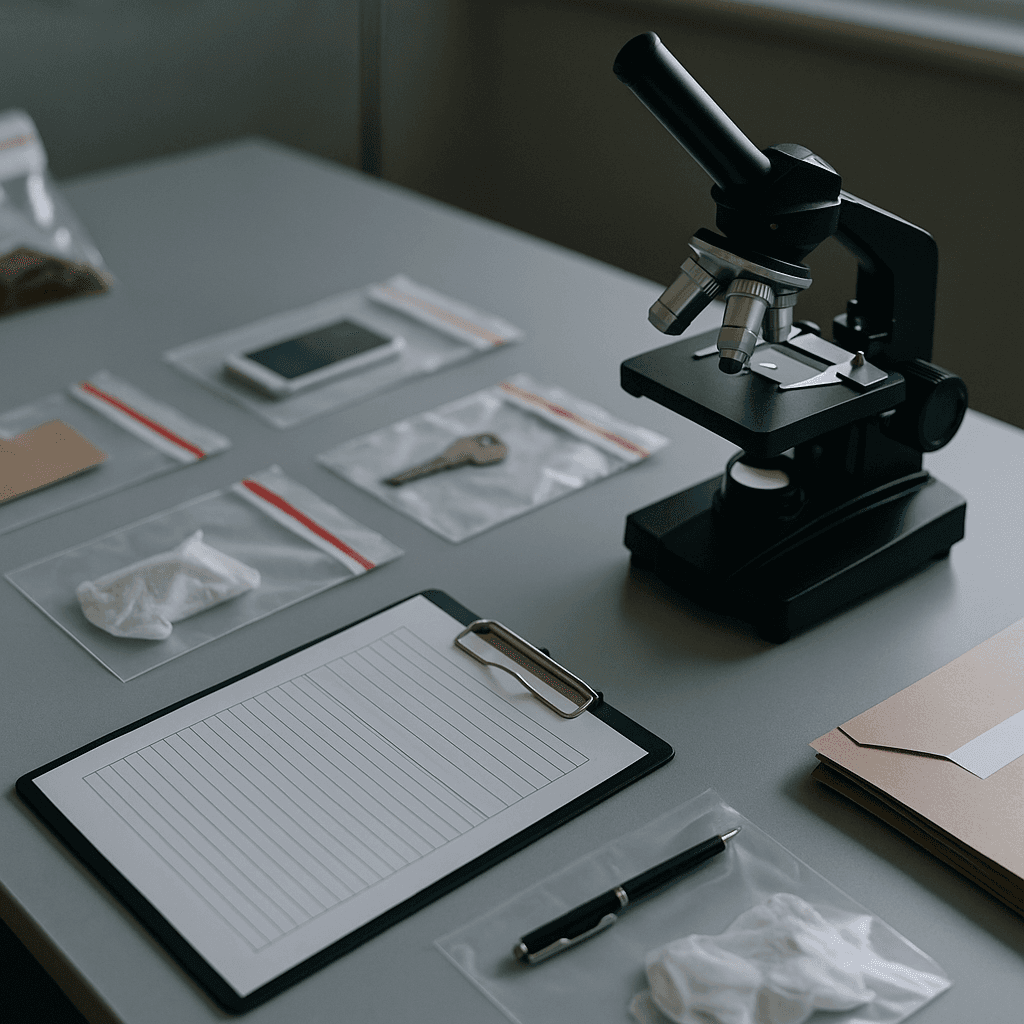
The Importance of Medical Documentation in Your Claim

Why Medical Documentation Is the Backbone of Your Case
In personal injury law, medical documentation is one of the most vital components of a successful claim. It is the tangible proof that connects your injuries to the negligent actions of another party. From initial emergency room visits to follow-up treatments and rehabilitation, every record builds the story of what happened and how it affected your life.
Accurate and detailed medical records do more than validate your pain—they quantify it. They help determine the severity of the injury, its long-term impact, and the cost of recovery. Without them, it becomes difficult to prove how an accident caused harm or to justify the compensation you deserve. Insurance companies and courts rely heavily on this evidence to assess both liability and damages, making thorough documentation essential from the very beginning.
An experienced personal injury lawyer understands how to interpret these records, organize them effectively, and present them in a way that clearly links medical evidence to the negligent actions that caused the injury.
Establishing the Link Between Negligence and Injury
To succeed in a personal injury claim, you must prove not just that someone was negligent, but that their actions directly caused your injuries. This is known as causation, and medical documentation is the key to establishing it. Your medical history, test results, and physician statements all serve to demonstrate how the incident led to your current condition.
For example, if a car accident caused a herniated disc, your records should clearly reflect when the symptoms began and how diagnostic imaging confirmed the injury. If gaps or inconsistencies exist—such as waiting weeks to seek treatment—insurers may argue that the injury was unrelated or pre-existing. Detailed documentation prevents these doubts from undermining your case.
Medical professionals play a central role in confirming the causal connection, but it's the organization and presentation of their findings that ultimately prove liability. Understanding how this link functions in personal injury law is crucial, much like the process explained through understanding causation: linking negligence to your injury, where the connection between fault and harm determines compensation.
Dispelling Misconceptions About Medical Proof
A common misconception is that if you "feel fine" immediately after an accident, you don't need medical attention. In reality, many injuries—like concussions or internal trauma—may not show symptoms right away. Delaying treatment can both worsen your condition and weaken your claim.
Some people also assume that a single doctor's visit is enough documentation. However, ongoing care provides a consistent medical narrative that strengthens your credibility and shows the full scope of your injuries. Insurance adjusters are trained to scrutinize gaps in treatment or missing reports, often using them to minimize payouts.
Clearing up these misunderstandings helps victims take the right steps early on. Misinformation can discourage individuals from seeking care or pursuing valid claims, reinforcing the need for clarity and accuracy. This reflects the importance of addressing common myths about personal injury lawsuits, where understanding the truth can make all the difference between success and denial.
Building the Medical Record from Start to Settlement
The timeline of your personal injury case often begins with the first medical visit and continues through treatment, documentation, and eventual settlement. Each phase adds another layer of proof. Early medical records establish the initial injury; ongoing treatment records capture the recovery process; and final evaluations define the lasting impact on your health and livelihood.
Throughout this process, consistency is key. Missed appointments or contradictory statements can raise questions about the validity of your injury or the seriousness of your condition. Keeping a detailed record of every consultation, test, and prescribed medication demonstrates both diligence and credibility.
Medical documentation also supports the financial aspects of your claim. Bills, receipts, and estimates for future care are used to calculate damages for medical expenses, lost wages, and pain and suffering. Recognizing how these documents fit into the broader legal process helps victims better understand their case's progression, similar to how the timeline of a personal injury case unfolds step by step, as outlined in the timeline of a personal injury case from accident to settlement.
The Role of Evidence Beyond Medical Records
While medical documentation is fundamental, it's not the only type of evidence that supports your claim. Photos of the accident scene, police reports, witness statements, and expert testimony all work together to create a complete picture of what happened. However, medical evidence carries a unique weight because it comes from impartial professionals whose findings can't easily be dismissed.
These records don't just show injury—they show consistency, progression, and impact. They help establish the timeline of symptoms, the treatment needed, and the potential for long-term complications. Strong medical evidence can counter claims that you're exaggerating or that another event caused your condition.
In fact, your medical file is often what decides whether your case settles favorably or proceeds to court. This is why gathering and preserving all relevant proof, including medical records, is so critical to your success. The idea that documentation can determine the outcome is echoed in evidence that can make or break your claim, where comprehensive proof ensures justice and fair compensation.
Medical Documentation in the Discovery Phase
If your case proceeds to litigation, your medical records become central during discovery, the stage where both sides exchange information. During this phase, attorneys request and review all evidence relevant to the claim—including medical documentation. The opposing side will scrutinize every report, treatment note, and test result for inconsistencies or signs that the injury wasn't caused by the accident.
This process ensures transparency and fairness but also highlights why thorough, accurate documentation matters. Incomplete or unclear records can create doubt and give the defense room to challenge your credibility. On the other hand, detailed, well-organized medical evidence leaves little space for dispute and often encourages settlement before trial.
Discovery also involves depositions, where medical professionals may testify about your condition and its cause. Having clear, consistent records makes these testimonies stronger and more persuasive. This phase reinforces the necessity of preparation and precision, much like what happens during discovery in a personal injury lawsuit, where every fact and document plays a pivotal role in the outcome.
How Attorneys Strengthen Medical Evidence
A skilled attorney knows that medical documentation is more than paperwork—it's the foundation of proof. They coordinate with doctors, specialists, and expert witnesses to ensure every report accurately reflects the extent of your injuries. They also identify missing information and request clarifications that close potential loopholes in the defense's argument.
An attorney may also prepare summaries or visual aids that simplify complex medical terms for judges, juries, or insurance adjusters. They understand how to connect the dots between your medical evidence and legal arguments for damages. Without this guidance, important details could be overlooked or misunderstood, weakening your position.
Working closely with a legal professional ensures that your records tell a cohesive, accurate story of how the injury occurred and how it continues to affect your life.
Medical Evidence: Your Path to Fair Compensation
Ultimately, medical documentation is more than just a formality—it's the lifeline of your personal injury claim. It proves causation, supports credibility, and quantifies damages. Each appointment, report, and treatment log contributes to a narrative of recovery and accountability.
By seeking timely medical attention, maintaining consistent records, and working with experienced legal counsel, you can build a case that withstands scrutiny and demands fair compensation. Medical documentation doesn't just record your journey to recovery—it becomes the proof that justice requires.
Blog Posts:

The Role of Expert Witnesses in Injury Litigation
Why Expert Witnesses Matter in Personal Injury Cases In personal injury litigation, facts alone are often not enough. While evidence like medical records, photographs, and witness statements paint part of the picture, juries and insurance companies frequently need context and explanation to understand the full scope of an injury and its impact. This is where expert witnesses play a pivotal role. Expert witnesses are professionals—often doctors, engineers, economists, or accident reconstruction specialists—who provide testimony based on their specialized knowledge. Their objective is not to advocate for one side but to clarify complex issues that require professional interpretation. In many cases, their opinions help bridge the gap between evidence and understanding, making them critical to achieving fair compensation.

How Insurance Companies Evaluate Injury Claims
How the Evaluation Process Really Works When you file a personal injury claim, the insurance company begins a process that is anything but simple. Behind every offer or denial, there's a calculated evaluation designed to protect their bottom line. Insurers use data-driven methods, past claim outcomes, and internal guidelines to assess how much—if anything—they believe your case is worth. The goal of the insurance adjuster is straightforward: to settle your claim for as little as possible while closing the file quickly. They'll review your medical records, accident details, and even statements you've made to determine liability and damages. The more organized and detailed your claim presentation, the harder it is for them to undervalue it.

The Dangers of Handling a Personal Injury Case Without Legal Help
Understanding What's at Stake After an accident, it's natural to want to resolve things quickly. Medical bills begin piling up, your work may be disrupted, and insurance adjusters often seem eager to "help." Many people believe they can handle their personal injury claim on their own—especially if the situation seems straightforward. But personal injury law is complex, and even minor missteps can lead to significant financial loss. Without professional guidance, you may underestimate your claim's value, miss critical deadlines, or make statements that insurers later use against you. The legal process is designed to protect both sides, and insurance companies have experienced professionals working to limit payouts. Without an equally skilled advocate on your side, you're at a clear disadvantage. That's why consulting a personal injury lawyer early in the process is often the difference between fair compensation and a costly mistake.

When Should You Switch to a Different Injury Lawyer?
Knowing When It's Time for a Change Choosing the right attorney after an accident is one of the most important decisions you'll make in your recovery journey. However, not every lawyer-client relationship is a perfect fit. Sometimes, despite your best efforts, you may realize that your current representation isn't meeting your expectations. Whether it's poor communication, lack of progress, or a sense that your case isn't being handled effectively, recognizing when to switch attorneys can make all the difference in the outcome of your claim. Switching to a new personal injury lawyer doesn't mean starting over from scratch—it means taking control of your case and ensuring it receives the attention and effort it deserves. Understanding what to expect from your legal representation can help you identify the warning signs that it might be time for a change.
Get an agent on the line in seconds
Responsive
Legal Assistance
Our personal injury attorneys advocate for the funds necessary to cover bills, secure medical treatment, recoup lost wages, and provide compensation for your pain and suffering.
Are you facing unfair treatment from the insurance company?
Do you know the value of your case?
Is the insurance company asserting that the accident is your responsibility?

We'll get back to you ASAP.
Get Your Free Consultation
You Pay Nothing Unless We Recover Compensation For You
